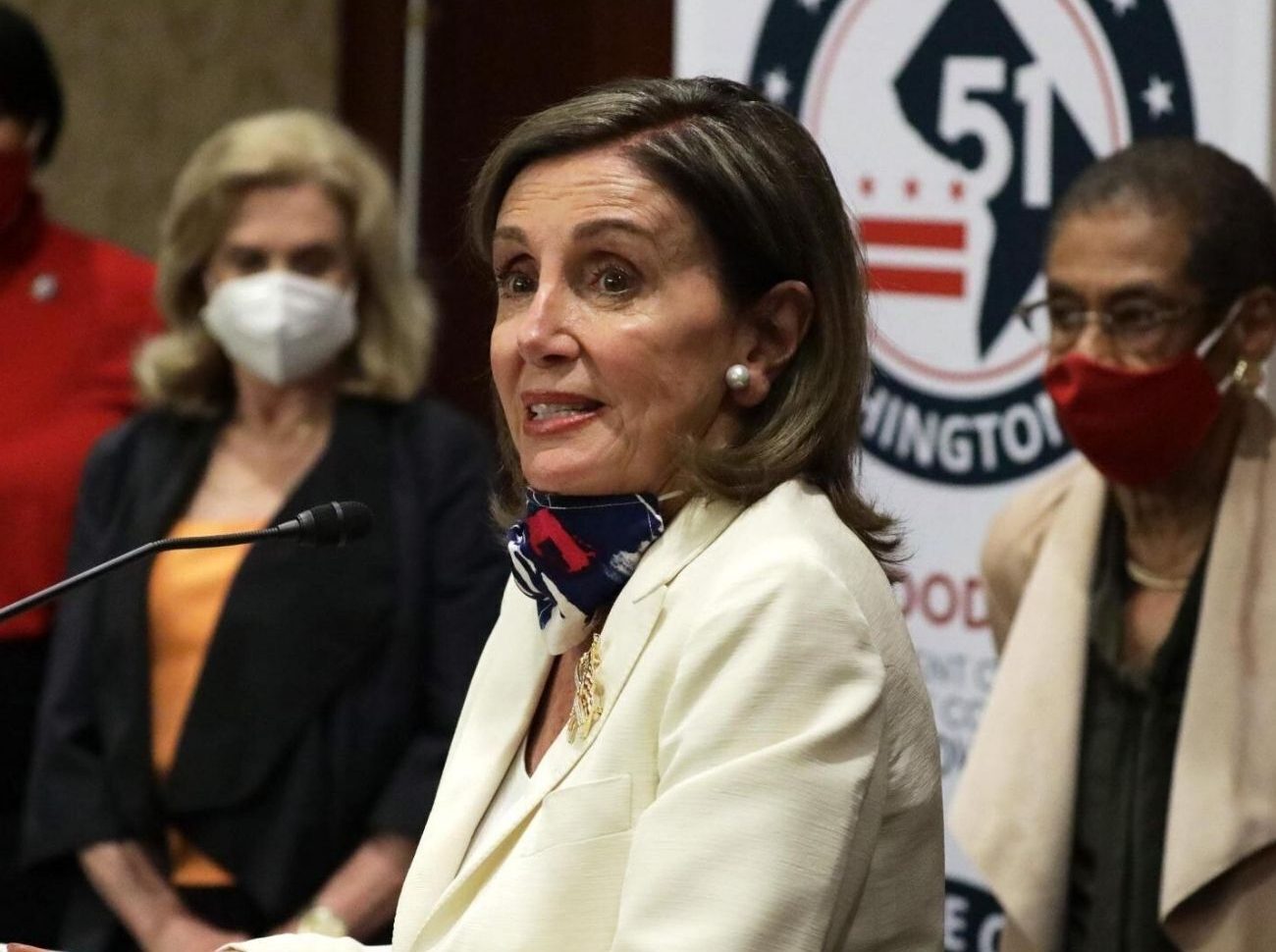Longtime DC Delegate Reportedly Defrauded by Home Repair Crew
A recently surfaced police report has sparked discussion surrounding Eleanor Holmes Norton, the 88-year-old Democratic Delegate to Congress representing Washington, D.C., after an alleged scam at her residence led to questions about her well-being and capacity to serve.
According to police documents obtained by reporters, Norton became the target of a home repair fraud scheme in late October, in which several individuals posing as HVAC technicians entered her residence and billed her over $4,000 for services that authorities say were never rendered.
The case, still under active investigation, highlights both the growing problem of scams targeting seniors and the sensitivity surrounding the age and fitness of long-serving public officials.
Incident Details: Thousands Charged for “No Work Performed”
Police say the incident occurred on October 24 at Norton’s home on 9th Street SE in the Capitol Hill area of Washington, D.C.
According to the report, multiple individuals approached Norton’s residence claiming to offer duct and fireplace cleaning services. They were allowed inside and, after a brief visit, charged her credit card $4,362 — though no legitimate work was completed.
The situation was halted when a close associate of Norton intervened, alerting authorities before additional transactions could occur.
The suspects reportedly left the scene before police arrived. Investigators have not yet confirmed whether any arrests have been made or whether the individuals involved have been identified.
Police Report Mentions Possible Cognitive Decline
The incident report obtained by local media included a notable observation: that the reporting officer believed Norton appeared to be in the “early stages of dementia.”
That description, however, has since been disputed by Norton’s office, which called the statement speculative and inaccurate.
“The medical diagnosis included in the police report was based on an assumption the reporting officer was unqualified to make,” a spokesperson for Norton said. “Furthermore, Congresswoman Norton doesn’t have a caretaker. A longtime employee and friend serves as the house manager, residing at a separate address.”
The office also clarified that Norton had not been diagnosed with dementia and that the inclusion of such a remark in a police document was “inappropriate and misleading.”
While the spokesperson confirmed the scam had taken place, they declined to provide further comment regarding Norton’s medical status or any ongoing health evaluations.
A Close Call Averted by a Trusted Associate
According to officials familiar with the matter, Norton’s “house manager and friend” was instrumental in preventing the scam from escalating.
This associate, who has worked with Norton for years, reportedly noticed irregularities in the payment and contacted police immediately, preventing further financial loss.
The quick intervention also drew attention to the rising trend of elder-targeted scams, which have increased significantly across the United States.
Experts note that scammers frequently target older individuals — especially those who live alone — by offering fraudulent repair services, health products, or government-related assistance.
Law Enforcement Investigation Continues
Authorities say the case remains under investigation. The suspects — believed to be part of a transient or organized scam network — are still at large. Police are reviewing footage from nearby surveillance cameras and local credit card transaction records to identify those responsible.
A D.C. Metropolitan Police official told reporters that this type of scam is becoming increasingly common and that elderly residents should be cautious when approached by unsolicited service providers.
“Always verify identification, licenses, and credentials,” the official said. “These criminals are experts at exploiting trust.”
Norton’s Office Pushes Back Against Medical Speculation
Following the release of the police report, Norton’s office took steps to clarify that no medical professional had made a diagnosis of dementia.
The spokesperson emphasized that the delegate remains active in her role and continues to handle legislative and community responsibilities.
“Congresswoman Norton remains fully engaged in her duties and continues to serve the people of D.C. with the same energy and focus she has shown for decades,” the statement read.
The statement also underlined that Norton maintains a robust daily schedule, including meetings, legislative briefings, and constituent services — though she has scaled back some public events due to her age.
A Storied Career Spanning More Than Three Decades
Eleanor Holmes Norton has been a fixture in Washington politics for over 30 years, first elected in 1990 as the District’s non-voting delegate to the U.S. House of Representatives.
While she cannot cast votes on final legislation, Norton has played a key role in committees, hearings, and policy advocacy — particularly on issues related to civil rights, local governance, and D.C. statehood.
Her career has included both praise for her longevity and scrutiny over her continued service well into her late 80s.
Even her critics often acknowledge her long record of advocacy and influence, though questions about age, capacity, and accountability among aging lawmakers have grown louder in recent years.
Age and Fitness Debate Rekindled in Washington
The Norton case has reignited a broader discussion already brewing in Washington: how old is too old to serve in public office?
The conversation has intensified following visible age-related concerns involving several high-profile politicians.
President Joe Biden, now 82, has faced widespread criticism for verbal missteps, frequent absences, and reliance on aides. Meanwhile, Senate Minority Leader Mitch McConnell, 83, has faced public health episodes that raised alarm even among colleagues.
Observers say these cases — combined with Norton’s recent incident — may increase bipartisan support for term limits and mandatory cognitive testing for federal officials over a certain age.
Public Concern Over Oversight and Protection
Public reaction to the Norton story has been mixed. Some express sympathy for an elderly public servant who may have been taken advantage of. Others question whether senior lawmakers receive enough oversight or protection from potential exploitation.
Consumer advocates argue that this case should serve as a wake-up call for Congress to implement stronger safeguards for aging representatives — including better personal security and mandatory fraud prevention briefings.
“Members of Congress are just as vulnerable to scams as anyone else,” said one elder protection expert. “The difference is that when it happens to a public official, the consequences can extend beyond personal loss.”
Elder Scams on the Rise Nationwide
According to recent data from the Federal Trade Commission, Americans over 60 lose an estimated $3 billion annually to fraud — much of it involving home repair, tech support, or financial scams.
Criminal groups increasingly use social engineering tactics, appearing legitimate through fake uniforms, websites, and even company vehicles.
Experts urge vigilance, especially among families of elderly individuals, recommending that trusted associates monitor transactions and verify unsolicited service offers.
Broader Political Implications in a Deep-Blue District
While Norton’s political position remains secure in overwhelmingly Democratic Washington, D.C., observers note that incidents like this can reignite discussions about succession planning and leadership continuity.
Should any future health concerns be confirmed, local Democratic organizations could face internal debates over representation and renewal.
For now, Norton remains an active delegate and continues her regular schedule in Congress, but questions about her long-term plans are likely to persist.
What Comes Next
Norton has not personally commented on the police report or the alleged scam. Her office has stated only that it is cooperating with law enforcement and awaiting further updates.
Meanwhile, the suspects remain unidentified, and the investigation is ongoing.
As the story develops, it may continue to fuel debate about both elder vulnerability and the need for institutional reform in Washington’s halls of power.
For many residents of D.C., the episode also underscores a broader truth — that age and public service remain complex and emotionally charged topics in American politics.

James Jenkins is a celebrated Pulitzer Prize-winning author whose work has reshaped the way readers think about social justice and human rights in America. Raised in Atlanta, Georgia, James grew up in a community that instilled in him both resilience and a strong sense of responsibility toward others. After studying political science and creative writing at Howard University, he worked as a journalist covering civil rights issues before dedicating himself fully to fiction. His novels are known for their sharp, empathetic portraits of marginalized communities and for weaving personal stories with broader political realities. Jenkins’s breakout novel, Shadows of Freedom, won national acclaim for its unflinching look at systemic inequality, while his more recent works explore themes of identity, resilience, and the fight for dignity in the face of oppression. Beyond his novels, James is an active public speaker, lecturing at universities and participating in nonprofit initiatives that support literacy and community empowerment. He believes that storytelling is a way to preserve history and inspire change. When not writing, James enjoys jazz music, mentoring young writers, and traveling with his family to explore cultures and stories around the world.









